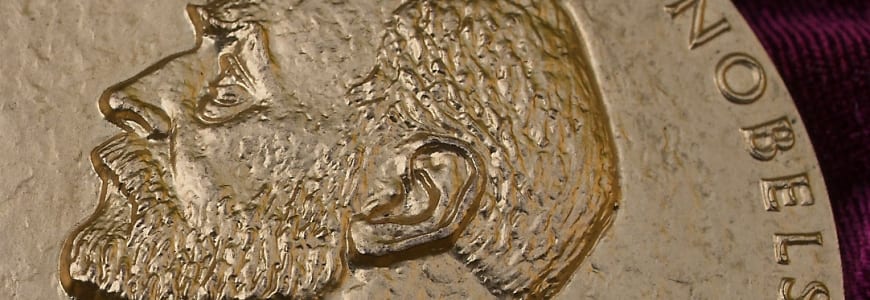By Rob Mitchum // October 14, 2013
Lars Peter Hansen — Computation Institute Senior Fellow, Research Director at the Becker Friedman Institute and the David Rockefeller Distinguished Service Professor in Economics, Statistics, and the College at the University of Chicago — can now add a new title to his catalog: Nobel laureate. This morning Hansen was honored with the 2013 Sveriges Riksbank Prize in Economic Sciences in Memory of Alfred Nobel alongside University of Chicago colleague Eugene Fama and Robert Shiller of Yale University. The trio received the prize for their work on understanding and forecasting asset prices over long-term periods, important insights for studying the behavior of stocks, bonds and other markets.
Within the CI, Hansen is one of the primary investigators for the Robust Center for Decision Making on Climate and Energy Policy (RDCEP), a group dedicated to creating tools to help policy makers make informed climate-related decisions in light of the deep uncertainty that is inherent to modeling the future. At RDCEP, Hansen works with economists, statisticians, geophysicists, policy experts to improve models of the complex interplay between a changing climate and the world economy, when decision makers are uncertain about how to forecast future economic events.
The University of Chicago caught up with Hansen this morning outside his favorite coffee shop to ask him about how it feels to win the Nobel and why UChicago is such a special place to study economics, with more than two dozen Nobel laureates and counting.
UPDATE: You can watch a video of this morning’s news conference with Hansen and Eugene Fama below.
“Today, the tools that Lars has developed are commonly used by all social scientists,” said John List, Chairman of the Department of Economics. “Whether it is to explore how public policies affect unemployment rates, how networks form, or how environmental regulations influence productivity growth, Lars’ work plays a key role.”
“I feel like this environment here really is something special,” said Hansen of the University of Chicago. “When I arrived I had people like Gary Becker and Jim Heckman and Bob Lucas as role models…for them, economics was supposed to do something, it was supposed to explain the world and it was supposed to be critical. It was supposed to have theoretical coherence but empirical underpinnings as well.”
Photo of Nobel prize medal by Robert Kozloff.

